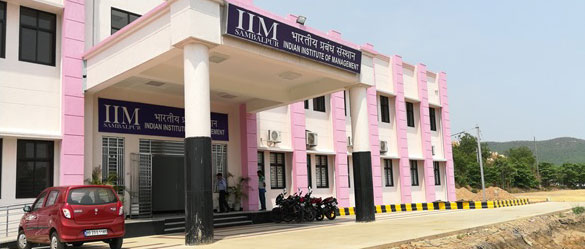Bhubaneswar: A total of 363 graduate students have been admitted to IIM Sambalpur for MBA courses for the academic year 2025-27, an official said Tuesday.
In the latest admissions cycle for the academic year (2025-2027), the IIM has reported a slight increase of 5 per cent in the number of engineers admitted compared to non-engineers, the institute said in a statement.
Of the total 363 graduates admitted across both the MBA programmes, 186, which constitute 51.24 per cent of the batch, hold engineering degrees, while non-engineers account for the remaining 48.76 per cent.
This development is evident across both its newly launched MBA in Business Analytics programme as well as the 11th batch of its flagship MBA programme for 2025-27, it said.
The preference for a technical background is evident in the MBA in Business Analytics (MBA BA) programme, where the engineering cohort comprises 61.70 per cent. The incoming MBA batch also comprises three students with physical and mobility challenges, the institute said.
However, the flagship MBA programme, reports a near equal distribution, with 49.68 per cent of graduates from engineering and 50.32 per cent from non-engineering backgrounds.
Additionally, the MBA BA cohort stands out for its industry readiness, as 100 per cent of the cohort possesses prior work experience, thereby increasing the practical orientation and applicability of the programme in the evolving business environment.
Out of the total students admitted this year, 33 per cent are women and the remaining 67 per cent are men. The flagship MBA classroom has 38 per cent women and 62 per cent men, whereas the MBA BA pioneers include 5 per cent women and 95 per cent men, the statement said.
Disciplinary variety stretches well beyond engineering — around 20 per cent of the students hold commerce and accountancy degrees, 9 per cent come from science background, 8 per cent from management related courses and 4 per cent from arts, with the remainder bringing specialised qualifications in other fields such as agriculture, horticulture, pharmacy, law, journalism, fashion technology, dentistry, hotel and tourism management, and shipping.
Seventy-five per cent of the entire cohort admitted to the institute has prior work experience.
In terms of geographical diversity, the batch comes from almost all states and Union territories of India, including the Andaman and Nicobar Islands. In terms of state of domicile, Maharashtra and Uttar Pradesh account for 13 per cent and 12 per cent of the incoming batch, followed by Madhya Pradesh, Odisha, Delhi, West Bengal, Telangana, Rajasthan, Jharkhand, Bihar, Tamil Nadu, Kerala, and Gujarat.
Welcoming the students, Mahadeo Jaiswal, Director of IIM Sambalpur said, “Our mission is to make Sambalpur the first sustainable city in India, for which we seek the help and support of the government. As a new-age IIM, we are contributing to this national vision by developing leaders who are not just job-seekers, but job-creators with entrepreneurial mindsets.”
V Srinivas, Secretary, Department of Administrative Reforms and Public Grievances of the Centre, said, “Across every sector, space, biotech, semiconductors, energy and robotics, India is witnessing an unprecedented technology surge.”
The “maximum governance, minimum government” approach of the government is turning that momentum into citizen-first outcomes: 100 per cent paperless central secretariat, the world’s largest AI-enabled grievance redress platform, and deregulation that trims 20 plus outdated compliances so businesses can thrive, he said.
The Union secretary said that IIM Sambalpur’s forward-looking MBA in Business Analytics mirrors this national journey, rooted in data, driven by innovation and shaped by ethical leadership.






































